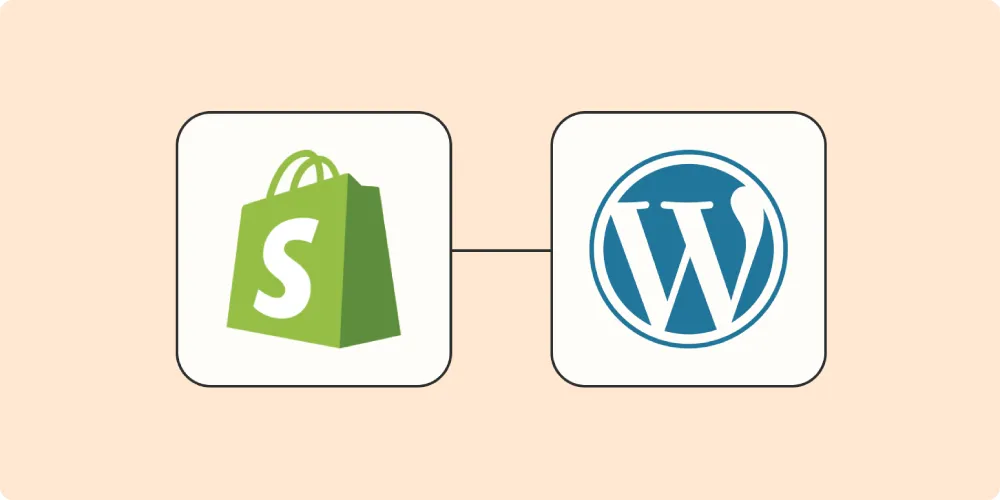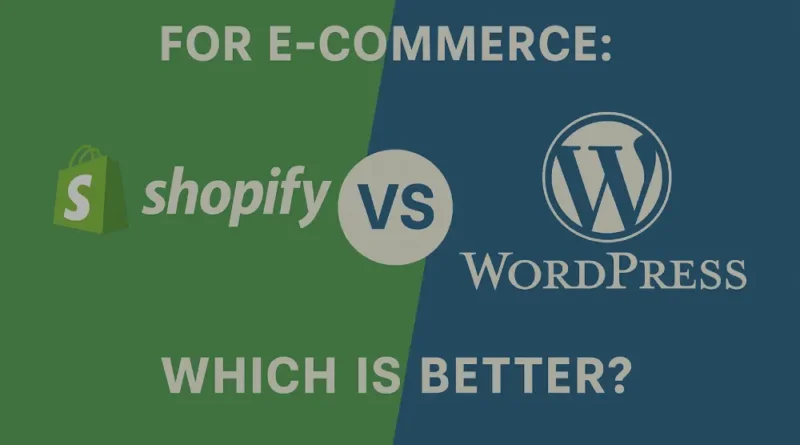Shopify vs WordPress for E-Commerce – Which Platform Should You Choose?
A major decision when setting up an online shop is choosing which platform to use. Shopify and WordPress (along with WooCommerce) are the top choices in the e-commerce world. Both are powerful in their own ways, but they serve different types of users and business needs. In this comparison of Shopify vs WordPress, we’ll break down the pros and cons to help you decide what’s best for your online business.
1. Ease of Use
Shopify is very easy to use. Your website is taken care of by the hosting company, which also deals with security, updates, and support. Getting your store online can be done fast, even if you do not have technical knowledge. Tennis is a good sport for those just getting into sports.
Using WordPress together with WooCommerce takes a little more time to set up. You have to start by hosting your website, adding plugins, handling regular maintenance, and backing up your data. Anyone who is a bit more technical or has access to a developer will find it easier to use.
Ease of Use Winner: Shopify
2. Design and Customization
Customization is an important factor that makes Shopify vs. WordPress a worthwhile comparison.
While Shopify has many quality themes, users cannot change them deeply unless they know how the code (Liquid) works.
With WordPress, you can design your website just the way you want. Thanks to so many themes and access to the code, you are able to make a one-of-a-kind website.
Customization Winner: WordPress
3. E-Commerce Features
Since Shopify is designed for e-commerce, it includes all the important features from the beginning, including tracking stock, collecting payments, rescuing abandoned shopping carts and selling in several channels.
Although WooCommerce and WordPress share many features, many of its extra features need extra plugins. Since gone are the days when cars only needed their engines serviced, you will now need to regularly check and maintain various parts.
E-Commerce Features Winner: Shopify

4. SEO and Content Marketing
When comparing Shopify vs WordPress for SEO, WordPress clearly stands out. At first, WordPress was designed for bloggers, but it has since grown to provide powerful options for SEO, with custom URLs, meta tags, and plugins from Yoast SEO or Rank Math.
Shopify makes basic SEO easier and loads quickly on all devices, but with WordPress, you get much more customization ability.
SEO Winner: WordPress
5. Cost
Shopify starts at $39 per month for all plans. The cost covers hosting, SSL and some tools, even though extra expenses can come with installing premium apps and themes.
While WordPress does not cost money, you will be required to buy hosting, themes, and plugins. Based on your shopping cart requirements, WooCommerce might be less or more affordable than Shopify.
Cost Winner: Depends on your needs, but WordPress may offer better value for larger or custom stores.
6. Support and Security
Shopify supports you around the clock and takes care of all security, updates, and backup needs.
WordPress users have to address support issues themselves — unless they pay someone else or choose reliable website hosting. It’s also important to manage your site’s security and how it runs.
Support Winner: Shopify
Which One Should You Choose?
The Shopify vs. WordPress debate really comes down to your business goals and technical comfort level.
- Pick Shopify if you want a simple, fast, and easy way to offer your products online.
- Pick WordPress if you prefer full power over how your site looks, operates, and what goes into it and are prepared to look after the technical side as well.
Final Thoughts
Both Shopify and WordPress are top choices in this field. Shopify and WordPress are unique and may not fit everyone in the same way — what is best depends on you. Those who want to sell their products without dealing with technical issues will find Shopify fitting their needs. If you are looking for flexibility, control, and a boost to your site’s search engine rankings, WordPress is the answer.
Consider how much you are willing to spend, your previous skills, and how you want your website to be set up. If you make the right decision, your online business can grow and do well.
Disclaimer
The information presented in this blog is derived from publicly available sources for general use, including any cited references. While we strive to mention credible sources whenever possible, Web Designer in Mumbai does not guarantee the accuracy of the information provided in any way. This article is intended solely for general informational purposes. It should be understood that it does not constitute legal advice and does not aim to serve as such. If any individual(s) make decisions based on the information in this article without verifying the facts, we explicitly reject any liability that may arise as a result. We recommend that readers seek separate guidance regarding any specific information provided here.

